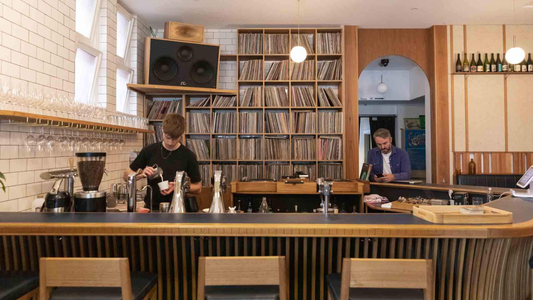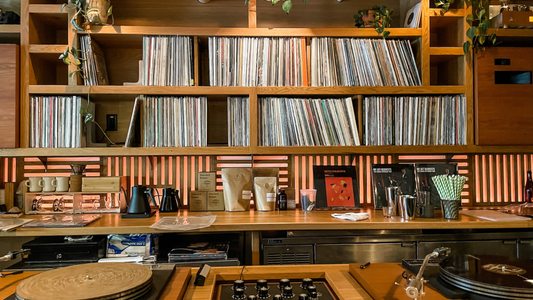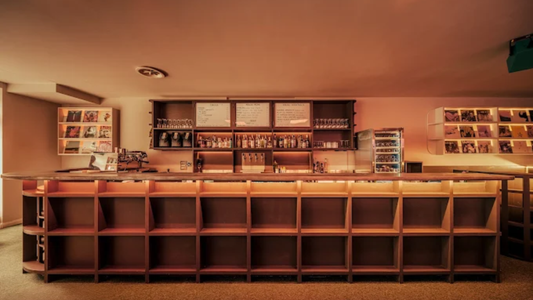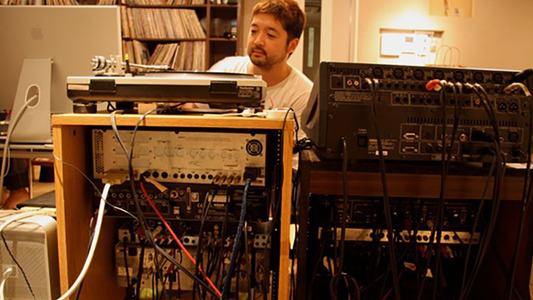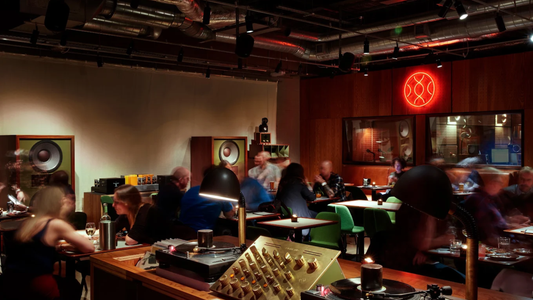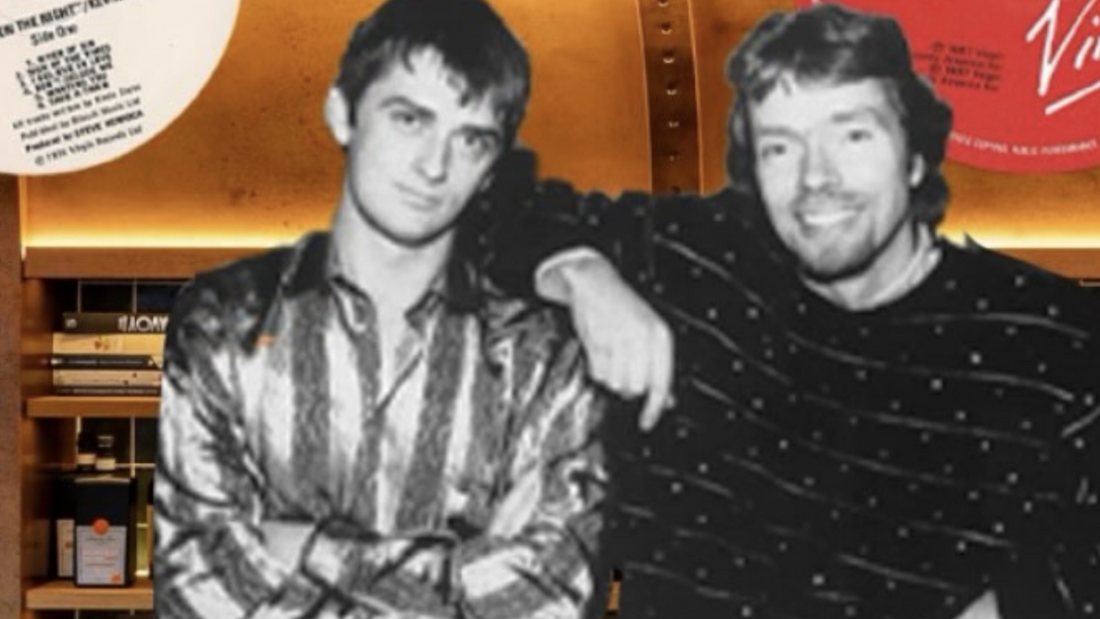
Why the Time Is Right for Tracks & Tales
By Rafi Mercer
In life, timing is everything. We pretend otherwise, telling ourselves that hard work and talent are enough, but the truth is simpler and more elusive. Timing decides whether an idea takes flight or falls flat. A song released too soon feels unfinished; released too late, it feels tired. But catch the moment exactly, and it becomes part of culture.
The history of music is full of such timing. The birth of bebop in a Harlem club when swing was growing stale. Punk tearing through London just as disco glittered into excess. House music emerging in Chicago warehouses while the mainstream chased arena rock. Each was not only about sound but about timing: arriving precisely when the world was ready for a change.
Napster was timing, too — timing of a different kind. In 1999, the CD business was at its peak, bloated and complacent, still selling discs for £17 at scale. And then, from a dorm room, came free music. The industry wasn’t ready. It collapsed, reshaped forever. My own career at Virgin was pulled under by that wave, as physical retail faltered against digital abundance. Timing can end worlds as quickly as it begins them.
But timing can also renew. Kindly, Richard Branson helped a few of us find our feet on the other side, guiding us into the new digital economy. I joined one of the early-stage dot-coms that would go on to become one of the big ones. Suddenly I was buying and selling not jazz imports but “stuff” — anything and everything that people wanted to shift online. One day, in fact, I helped broker a sale for the very pitch of Wembley Stadium, torn up and parceled out in squares, sent to fans around the country. But that’s a story for another day.
The point is this: timing moved me from vinyl to Virgin, from Virgin to dot-com, from dot-com to here. Endings create beginnings. The collapse of one culture cleared the space for another. Out of Napster’s flood came the vinyl revival, the rediscovery of scarcity, the hunger for albums, the search for fidelity. Today, a new culture is forming: listening bars in Tokyo, New York, London, Paris; hi-fi cafés in Seoul and Berlin; whisky lounges in Melbourne and São Paulo. Rooms shaped not for consumption but for attention. A culture that values silence as much as sound, detail as much as volume.
And this is where Tracks & Tales comes in.
The timing could not be clearer. The world is saturated with abundance — playlists that never end, streams that never stop, songs that arrive in fragments of nine seconds. But abundance has reached its limit. People are fatigued. They don’t want more; they want better. They don’t want noise; they want space. They don’t want choice without end; they want curation they can trust.
Tracks & Tales exists to answer that need. To be the global guide to sound — the Michelin of listening bars, the atlas of fidelity, the archive of albums that matter. Nobody else is doing this. Venue listings exist, yes, but scattered. Vinyl shops exist, yes, but unanchored. Lifestyle blogs exist, yes, but diluted. No one has joined them into a coherent movement around sound. No one has set the standards, awarded the stars, written the stories that make listening a culture, not just a pastime.
This is why the timing is right.
Three forces align. First, the vinyl revival: sales are rising worldwide, yet the culture remains under-documented, under-curated, waiting for a voice to narrate it. Second, the listening bar movement: growing city by city, but fragmented, hidden, without a guide to map it. Third, streaming fatigue: a generation raised on endless choice now craves depth, ritual, care. Together, they form the perfect moment for a guide like Tracks & Tales to step in.
Our ambition is simple, though not easy. To find the best sounding venues in the world. To tell the story of albums that reward deep listening. To shape a lifestyle around presence, silence, and fidelity. Simple is different to easy. It will take time, discipline, curation. But it is the simplicity that makes it clear, and the timing that makes it urgent.
One day, we will award the Tracks & Tales Stars, recognising venues that reach the highest levels of sound and atmosphere. For now, we map. We listen. We list. We tell the stories of bars in Tokyo basements, of cafés in Seoul side-streets, of clubs in New York lofts, of rooms in Berlin factories. Each venue added is a step toward the guide. Each essay is part of the atlas. Together, they build the authority we need.
And then we connect it to the story of music itself. Albums chosen not for trend but for weight. Works like Pharoah Sanders’ Promises with Floating Points, or Agnes Obel’s Philharmonics, or Makaya McCraven’s Universal Beings — contemporary albums that belong alongside the canon, that reveal their depth only when heard in full. Albums for listening bars and for home listening nights alike.
Around this, we build the lifestyle. Not as luxury reserved for a few, but as a way of living open to all. A glass of whisky poured with care. A room arranged for sound. A café that chooses vinyl over chatter. A global community that values listening not as background but as culture.
The timing is right because people are ready. Ready to slow down, to seek out spaces where silence is possible, to trust a guide that can lead them through noise to clarity. Ready for Tracks & Tales.
Napster ended one era with its timing. Tracks & Tales begins another with ours. If we do this well, if we keep the focus, if we honour the silence, then we can make listening matter again. Not as nostalgia, but as future. Not as indulgence, but as necessity.
The time is now.
Rafi Mercer writes about the spaces where music matters. For more stories from Tracks & Tales, subscribe, or click here to read more.
